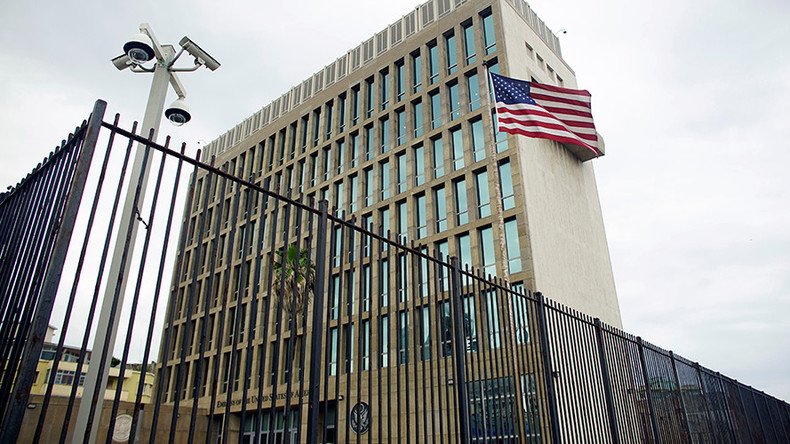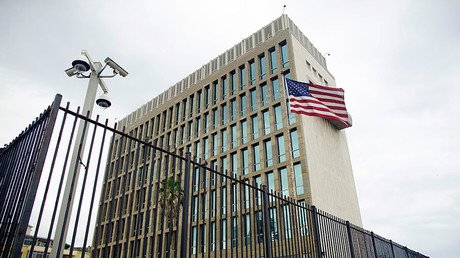US urges no travel to Cuba, cuts embassy staff by more than half

The US State Department is expected to announce that it is pulling the majority of its staff out of its embassy in Havana, while warning Americans against travel to Cuba due to ‘health attacks’ on diplomats, according to officials.
“Until the Government of Cuba can ensure the safety of our diplomats in Cuba, our Embassy will be reduced to emergency personnel in order to minimize the number of diplomats at risk of exposure to harm,” said Secretary of State Rex Tillerson in statement on Friday.
The embassy in Havana will lose roughly 60 percent of its US staff and will stop processing visas indefinitely, American officials told AP on Friday.
"US embassy personnel are most at risk but . . . the American public traveling in Cuba might also be at risk as well," a senior State Department official told reporters Friday morning.
The move comes after at least 21 diplomats and their families have experienced health problems over the past year, some as traumatic as brain injury and hearing loss. Investigators have been unable to determine who or what is behind the attack.
The announcement, first reported by CBS News, comes just three days after Secretary of State Rex Tillerson met with Bruno Eduardo Rodriguez Parrilla, Cuba’s foreign minister, in Washington. The meeting failed to persuade Tillerson that the Cubans could guarantee the safety of the remaining American employees in Havana, promoting him to decide to recall most of the embassy’s staff, a senior official said.
The State Department will also issue a travel warning to American tourists against visiting Cuba. However, while some attacks have occurred in Cuban hotels, no tourists have so far been stricken.
Cuban officials have denied any involvement in the incidents.
"The Cuban government has never perpetrated nor will it ever perpetrate attacks of any kind against diplomats," said the Cuban Foreign Ministry in a statement earlier this week.
"The Cuban government has never permitted nor will it ever permit the use of its territory by third parties for this purpose. There is no evidence so far of the cause or the origin of the health disorders reported by the US diplomats."
The US will stop issuing visas in Cuba indefinitely and is halting official travel due to the attacks. Cubans seeking visas to enter the US may be able to apply through embassies in nearby countries, unnamed officials told media.
Officials told the New York Times the FBI had visited the homes of diplomats in Cuba but had not been able to detect anything. Security footage of the homes showed nothing suspicious. Officials suspected some kind of futuristic “sonic attack.” Some of the diplomats reported hearing loud noises or feeling vibrations when the incidents occurred but others heard and experienced nothing. The FBI has been unable to duplicate the symptoms in a lab.
The decision is a setback for the historic reconciliation between the US and Cuba fostered during the Obama administration, when diplomatic ties were restored, embassies re-opened and travel and commerce restrictions were rescinded.
The Trump administration has reversed some changes, but pointedly has not blamed Cuba for perpetuating the attacks.













